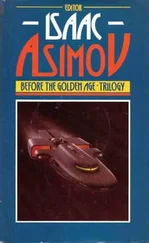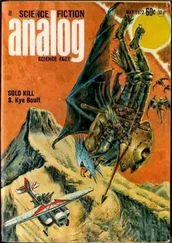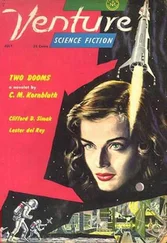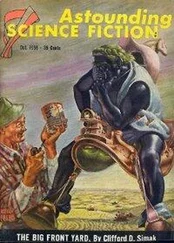Clifford Simak - The Werewolf Principle
Здесь есть возможность читать онлайн «Clifford Simak - The Werewolf Principle» весь текст электронной книги совершенно бесплатно (целиком полную версию без сокращений). В некоторых случаях можно слушать аудио, скачать через торрент в формате fb2 и присутствует краткое содержание. Жанр: Фантастика и фэнтези, на английском языке. Описание произведения, (предисловие) а так же отзывы посетителей доступны на портале библиотеки ЛибКат.
- Название:The Werewolf Principle
- Автор:
- Жанр:
- Год:неизвестен
- ISBN:нет данных
- Рейтинг книги:3 / 5. Голосов: 1
-
Избранное:Добавить в избранное
- Отзывы:
-
Ваша оценка:
- 60
- 1
- 2
- 3
- 4
- 5
The Werewolf Principle: краткое содержание, описание и аннотация
Предлагаем к чтению аннотацию, описание, краткое содержание или предисловие (зависит от того, что написал сам автор книги «The Werewolf Principle»). Если вы не нашли необходимую информацию о книге — напишите в комментариях, мы постараемся отыскать её.
The Werewolf Principle — читать онлайн бесплатно полную книгу (весь текст) целиком
Ниже представлен текст книги, разбитый по страницам. Система сохранения места последней прочитанной страницы, позволяет с удобством читать онлайн бесплатно книгу «The Werewolf Principle», без необходимости каждый раз заново искать на чём Вы остановились. Поставьте закладку, и сможете в любой момент перейти на страницу, на которой закончили чтение.
Интервал:
Закладка:
She took a step down the aisle.
'Not too far, the captain warned. 'Not too close.
She took another step and halted.
This is foolish, she thought. If he is there, he knows. He'd know that it is me and he would not be frightened — he'd know I have for him nothing but my love.
The pyramid pulsated gently.
But perhaps he doesn't know, she told herself. Perhaps he has locked himself against the world and if that is what he's done, he had reason to.
How must it be, she wondered, to know that your mind is the mind of another man — a loaned mind since you can have none of your own, because man's ingenuity was not quite great enough to fabricate a mind? Ingenuity sufficient to fashion bone and flesh and brain, but not to fashion mind. And how much worse, perhaps, to know that you were a part of two other minds — at least two other minds.
'Captain? she asked.
'Yes, Miss Horton.
'Do the scientists know how many minds there are? Could it be more than three?
'They don't seem to know, he said. 'Granted the situation as it stands, there might not be a limit.
No limit, she thought. Room for an infinity of minds, for all the thought that lay in the universe.
'I am here, she said, speaking silently to the creature that had been Andrew Blake. 'I am here. Can't you tell I'm here? If you ever need me, if you change back into a man again…
But why should he change back into a man again? Perhaps he had changed to this so he need not be a man, so that he need not face a humanity that he could not share.
She turned and took a hesitant step towards the chapel's front, then turned back once more.
The pyramid was shining softly and it seemed so peaceful and so solid, yet withdrawn, that her throat constricted and tears came to her eyes.
I will not weep, she told herself, fiercely. I will not weep, for whom would I be weeping? For Andrew Blake? For myself? For the befuddled race of man?
Not dead, she thought. But worse than death, perhaps. If he had been a man and dead, she could have walked away. She could have said goodbye.
Once he had turned to her for help. Now he was beyond her help, or any human help. Perhaps, she thought, he was beyond all humanity.
She turned again.
'I'll leave now, she said, 'Captain, please; would you walk beside me.
He took her arm and walked beside her down the aisle.
31
It all was there. The great black towers anchored in the planet's granite crust, reached towards the skies. The green and leafy glade, with its flowers and gaily-playing animals, stood motionless in time. The pink-white structure rose in airy curves and spirals above the purple, foam-flecked sea. And in the aridity of the great plateau the mustard-coloured domes of hermit intelligences ran as far as sense could reach.
These and many others — and not the pictures of them only, snatched from the ice-hard stars which lay like scattered crystals across the skies that roofed a planet of drifted sand and snow — but the ideas and the thoughts and concepts that clung to all the pictures, like bits of dirt to roots.
Most of the thoughts and concepts were simply isolated pieces which would not correlate, but all of them were springboards for the fabrication of a vast jigsaw puzzle net of logic.
The task was an enormous one and at times confusing, but bit by bit the various data fell into filing patterns, and once identified were erased from active consideration, but still tagged and available when there should be need of them.
It worked with satisfaction and a happiness — and that bothered it. Satisfaction was all right and quite permissible, but happiness was wrong. It was something that had been unknown and should not be felt; it was an alien thing and it was emotion. For the best result, there must be nothing like emotion, and it was irritated at the happiness and tried to wipe it out.
A contagion, it told itself. A contagion that it had caught from Changer and, as well, perhaps, from Quester, who was at the best a most unstable creature. A situation that it must guard against, for happiness was bad enough — there were other illogical emotions held by those two that could be even worse.
So it wiped away the happiness and posted guard against it, and went on with its work, reducing the ideas and the thoughts and concepts, in so far as they could be so reduced, to formulae and axioms and symbols, being careful in the process not to lose the substance of them, for the substance would be needed later.
There were tantalizing hints that must be docketed for more consideration and, perhaps, even for more data. The logic pattern potentially was sound but extrapolated too far it left some room for error and needed further data to indicate direction. There were so many tricky things; there was nothing ever easy. The process called for hard discipline and constant self-examination to be certain that the concept of one's self was eliminated. That was the thing, it thought, that made happiness so bad.
The material of the black tower, for example. So thin it seemed impossible for it to stand, let alone have strength. But there could be no doubt about its thinness; that information came through very clear and solid. But the hint of neutrons was something else — neutrons packed so solidly together that they assumed the characteristics of a metal, all held in a rigid association by a force for which there was no definition. The hint indicated time, but was time a force? A dislocated time, perhaps. A time straining to take its proper place in either past or future, for ever striving towards a goal made impossible by some fantastic mechanism that kept time out of step?
And the fishers of space who cast their nets across empty cubic light years, catching the energy spewed out in space by all the angry suns. Catching, in the process, the incredible flotsam of unknown things that once had crossed or once had lived in space — the garbage of the vast stretches of abandoned space. Nothing about the fishers or what kind of nets they cast or how these nets might trap the energy. Just the thought that the fishers fished. Some fantasy, perhaps, of some dim communal mind, a religion or a faith or myth — or could there be the fishers?
These and many more and that one faint impression, so faint it barely registered, faint, perhaps, because it had been dredged from a star so distant that even light grew tired. A universal mind, it said, and that was all it said. A mind, perhaps, from which all thinking came. A mind, perhaps, that gathered in all thinking. Or a mind that set the law and order which spun the electron around the nucleus and called out marching cadences to the galaxies.
There was much, and all of it fragmentary and very puzzling. And this was just a start. This was the harvest merely of a moment of time on a single planet. But it was important, all of it, every bit of information, every faint impression. Somewhere it all fit in, somehow there was a place for it in that pattern of law and order, cause and effect, action and reaction which made up the universe.
Time was all that was needed. With more data and more logic it could all become as one. And time, as a factor, could be cancelled out. There was an eternity of it.
Thinker, squatted on the chapel floor, pulsated gently, the logic mechanism that was its mind driving towards the universal truth.
32
Changer struggled.
He must get out. He must escape. He could not remain buried in this blackness and quietness, in the comfort and security, in the brotherhood that encompassed and engulfed him.
He did not want to struggle. He would rather have stayed exactly where he was, remain the thing he was. But something made him struggle — not something inside himself, it seemed, but something from outside himself, a creature or a being or a situation that called out to him and told him that he could not stay, that no matter how much he might wish to stay, he could not. There was something left undone and it could not be left undone and he was the only one who would be able to perform the task, whatever it might be.
Читать дальшеИнтервал:
Закладка:
Похожие книги на «The Werewolf Principle»
Представляем Вашему вниманию похожие книги на «The Werewolf Principle» списком для выбора. Мы отобрали схожую по названию и смыслу литературу в надежде предоставить читателям больше вариантов отыскать новые, интересные, ещё непрочитанные произведения.
Обсуждение, отзывы о книге «The Werewolf Principle» и просто собственные мнения читателей. Оставьте ваши комментарии, напишите, что Вы думаете о произведении, его смысле или главных героях. Укажите что конкретно понравилось, а что нет, и почему Вы так считаете.









